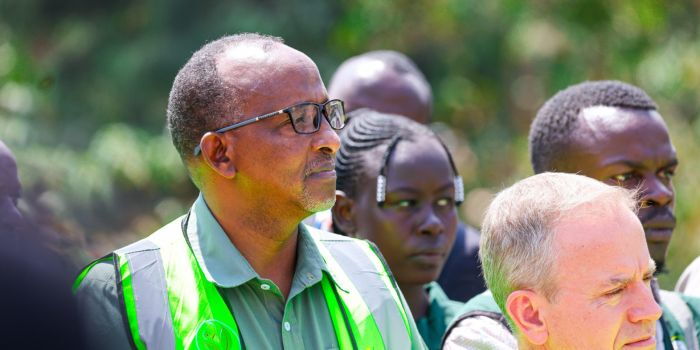CS Duale Targets Plastic and Aluminium in New Levy Plan

The government is seeking views on a proposal for new levies on a wide range of goods, including plastic, cardboard, aluminium, and glass, to raise more funds for the National Environment Restoration Fund. The plan is aimed at tackling the country’s waste management crisis and advancing environmental restoration efforts.
Why it matters: For many Kenyans, this could mean an increase in the cost of everyday items, as businesses are expected to pass these costs to consumers.
Kenya’s waste management has long been a source of concern, with inadequate infrastructure leading to widespread pollution. By focusing on products that contribute significantly to waste, the government aims to shift the burden to companies and industries. However, this is expected to impact consumers, as businesses could hike prices to offset the added costs.
However, with Kenya needing over Ksh8.3 trillion to mitigate effects of climate change, the government is seeking alternative avenues of raising resources.
President William Ruto addresing a crowd during the launch of Climate WorX at Korogosho Nairobi, September 12.
Photo
Duale
Dig deeper: Environment Cabinet Secretary Aden Duale, in a notice published on Friday, September 13, stated that the current financial resources are inadequate to address the country’s pressing environmental challenges.
He pointed out that Kenya’s efforts to mitigate environmental pollution, loss of biodiversity, and climate change require significant investment, far beyond the current allocations.
The proposed levies, to be drawn from imports of finished products, are intended to fund projects that will strengthen waste management systems, support ecosystem restoration, and drive innovation in green technologies.
Duale’s Ministry is pushing for this move to ensure that the country can sustainably manage its environmental responsibilities.
The additional funds collected will be channelled into modern waste management infrastructure such as Material Recovery Facilities, which will create new jobs in the green economy and help reduce pollution. The funds will also support efforts to restore degraded ecosystems, including wetlands and other key environmental areas.
Financial strain: Kenya’s environmental restoration efforts are critical, given the massive financial gap identified in the country’s Updated Nationally Determined Contributions (NDCs). According to these commitments, the country requires Ksh8.385 trillion between 2020 and 2030 to meet its climate goals.
Despite these needs, the government’s budget for the environment remains modest, with Ksh22.1 billion allocated for the Ministry of Environment and Natural Resources in the 2024-2025 financial year.
While significant amounts have been set aside for various environmental programs—such as Ksh73.1 billion for water access and Ksh10.7 billion for forest conservation—Duale emphasised that these funds are insufficient. The new levies are seen as a necessary step to bridge the funding gap, particularly for projects that address waste management and environmental conservation.
How it will work: This move builds on Kenya’s Extended Producer Responsibility (EPR) policy, which requires companies to take responsibility for the waste generated from their products. However, EPR has its limitations, as it mainly focuses on recycling and leaves residual waste unaddressed. The government now seeks to tackle this issue more comprehensively by ensuring the entire lifecycle of waste products is managed sustainably.
By increasing levies on goods that contribute to environmental pollution, the government aims to enforce corporate accountability while creating a sustainable funding mechanism for environmental projects. These measures are intended to reduce the country’s dependence on external funding, which has been unreliable in supporting long-term environmental strategies.
Kenyans, already burdened by the rising cost of living, may feel the pinch from these new levies. Yet, Duale argues that without a dedicated financial mechanism, Kenya risks falling behind in its environmental obligations.
“The challenges posed by pollution require sustained investment in infrastructure, policy, enforcement, and community education. Without reliable sources of domestic funding, Kenya risks falling short of its environmental obligations,” Duale stated.
The funds collected from these levies will be managed under the National Environment Restoration Fund, which is governed by the Environmental Management and Co-ordination Act.
President William Ruto and First Lady Rachel Ruto watering a tree in Israel on May 10, 2023.
PCS



